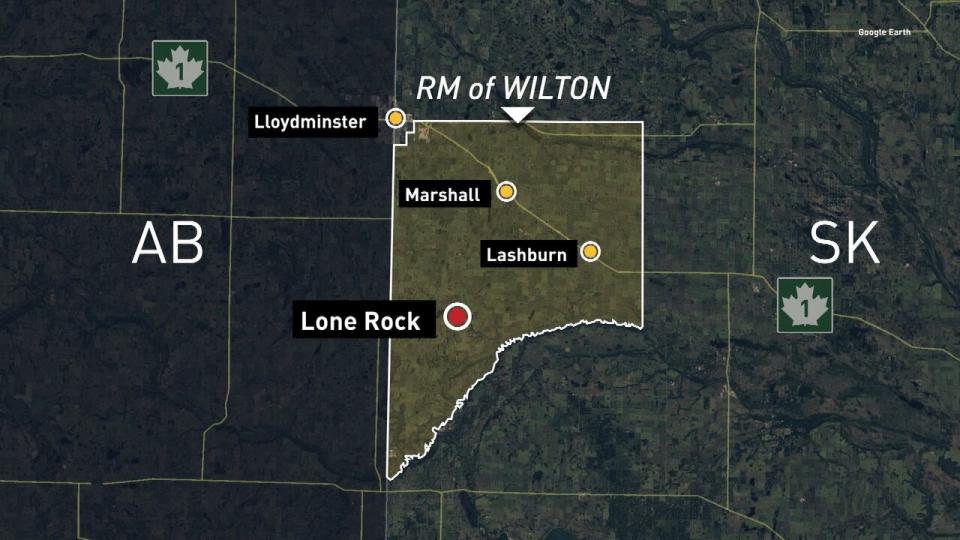In a rare move, an independent federal agency says the RCMP in Saskatchewan failed to properly investigate allegations made against the Rural Municipality of Wilton nearly five years ago.
A decision released by the The Civilian Review and Complaints Commission for the RCMP concludes “the police investigation … was unreasonable.”
It’s not clear if there was enough evidence to lay charges but the report, dated Aug. 23, references potential violations of provincial legislation and sections of the Criminal Code, including municipal corruption and violating a statute.
The man who filed the complaint against the RCMP feels validated by the commission’s findings.
“When I looked at the report and I found the information that they had, especially the correspondence between officers, I thought, well, there was no other way they could found anything else,” said Terry Kashuba.
Long-running dispute
The failure by the RCMP to properly investigate is just the latest part of a long-running dispute between the hamlet of Lone Rock and the municipality where it is located, the Rural Municipality of Wilton — located along the Alberta border northwest of Saskatoon.
In 2018, Wilton began purchasing properties in the small hamlet through a numbered company. They eventually began withdrawing water and sewer services as well, saying it was no longer financially feasible.

A map shows the Rural Municipality of Wilton and the location of the Hamlet of Lone Rock. (CBC)
Residents of Lone Rock protested and even attempted to have a judge review the decision.
While that effort ultimately failed, it did not stop residents of Lone Rock, including Kashuba — a then-local councillor for the hamlet — from filing complaints with the RCMP.
He alleged that the rural municipality had violated provincial law and the Criminal Code.
An unreasonable investigation
The file was assigned to Const. Kelan Henderson of the Maidstone RCMP detachment who began investigating at the onset of the COVID-19 pandemic.
By October 2020, Henderson had contacted Kashuba to inform him the Crown prosecutor would not be proceeding with charges as they deemed the matter civil, rather than criminal.
The commission disagreed, saying the Crown prosecutor never made that determination. They point to the Crown prosecutor writing that there was not sufficient admissible evidence for them to determine who should be charged, with what offences and whether there was a reasonable likelihood of conviction.
“It is possible that a full and complete investigation may change that opinion,” the report quotes the Crown prosecutor as writing.
Kashuba was then contacted by the Crown who said police would be proceeding . That left him confused.
“If you guys get the same information that I’m getting from the Crown, and this one says, we just need these other elements to these other specific sections, which you have, how are you saying that this is closed?” said Kashuba.
Corp. Dereck Crozier, Henderson’s supervisor, reviewed the investigation a short time later, directing the investigating officer to complete the follow-up investigation.
“We don’t want this investigation being picked up by CBC citing that we don’t care about the community and did not properly look into the charges,” wrote Crozier.


A metal signs shows a farm house, pump jack with the words ‘Welcome to Lone Rock: From 1926 to 2005.’ (CBC)
While Henderson would continue investigating and contacted specialized units for guidance, the review found notes from various officers that indicated they wrongly believed the Crown had ruled out criminal charges.
The review says that Henderson spent a considerable amount of time on an investigation that was more complex and different than a typical investigation. However, he relied on Kashuba to obtain documents and relied upon a mischaracterization of the Crown’s opinion as a justification for him stopping work.
The report ultimately lays the problematic investigation at the feet of the entire Maidstone detachment, not just Henderson.
It also stresses that, as the Crown highlighted in their opinion, there are time limits for laying charges under provincial legislation and the Criminal Code.
“While it is not immediately clear whether those limitation periods have expired, the commission recommends that the RCMP address this issue in a transparent manner,” the report concludes.
The Rural Municipality of Wilton has not responded to a request for comment.
The commission recommended that the RCMP should consider conducting further investigation into the allegations while directing senior officers to review sections of the RCMP guidebook in order to avoid any “potential or actual conflicts” of interest.
Both recommendations have been endorsed by RCMP Commissioner Michael Duheme.
In a statement, the spokesperson for the Saskatchewan RCMP said it “commits to adhering to the RCMP Commissioner’s response to this [Civilian Review and Complaints Commission] report.”

